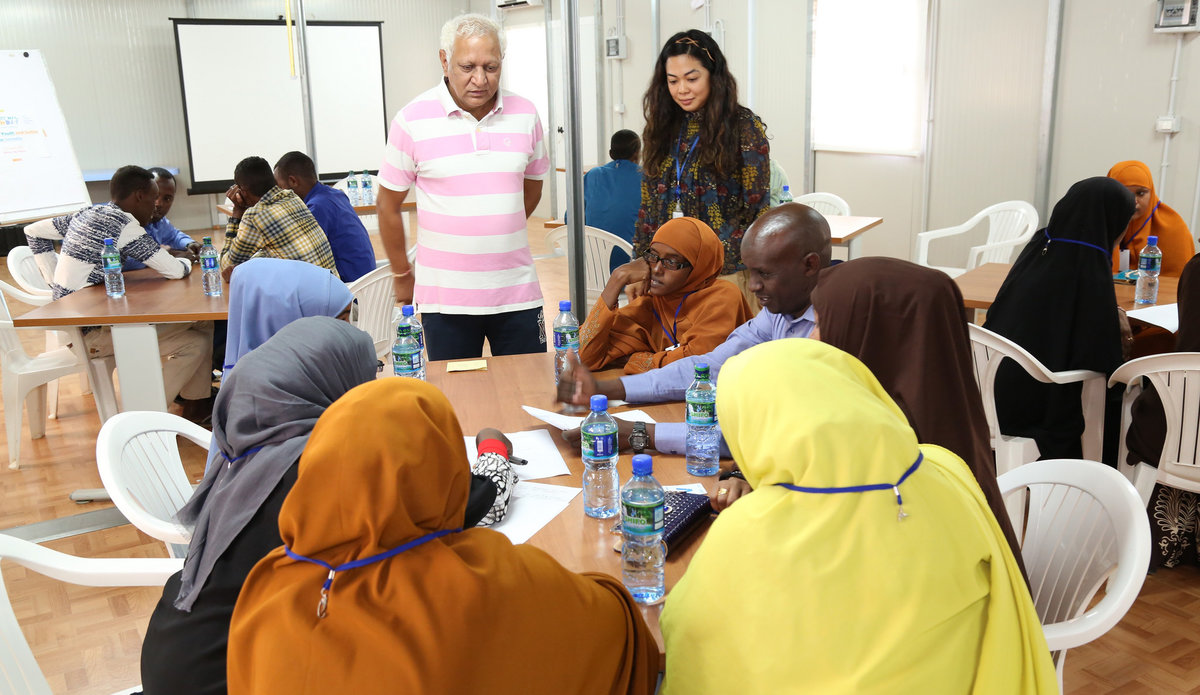Somali youths discuss their role in traditional dispute resolution mechanisms
Baidoa - The involvement of young people in conflict prevention, social justice and sustainable peace in Somalia featured prominently in a youth forum conducted on the sidelines of the International Youth Day celebrations in Baidoa, the administrative capital of South West state.
Organized by the UNSOM Rule of Law and Security Institutions Group, the forum brought together youth, civil society organizations, the UN and other experts on Somalia’s justice system.
The forum offered participants a platform to exchange views on that system and how young people can be agents of change in their communities. A similar forum was also held in the Jubbaland state capital of Kismaayo.
“The youth have benefited from the forum, which focused on the traditional justice system and the formal justice system. We have also learnt the importance of formal and traditional justice system to the youth,” said Mohamed Ali Hassan of the Somali Women Development Center, a non-governmental organization dealing in legal issues.
Some of the speakers at the forum noted that the potential of young Somalis to resolve conflicts has not been fully tapped within the traditional justice system, which remains a popular mechanism for settling disputes in the country.
“Somalia’s population mostly consists of the youth, and they have a huge potential in contributing to changes in the justice system,” explained Amanda Felipe, an UNSOM Judicial Affairs Advisor in the Joint Justice and Correction Section.
The traditional justice system plays a key role in solving conflicts and maintaining peace within Somali communities on account of its accessibility and perceived legitimacy. However, many youths feel the traditional justice system has not protected their rights and ensured equality of treatment.
The formal justice system does not represent a viable alternative for young Somalis because it is perceived as being too weak in most parts of Somalia.
“The youth we invited shared their views on how they can make positive change in the formal and informal justice systems and what they can do to put whatever they said into action,” remarked Ms. Felipe at the conclusion of the forum.
The forum succeeded in encouraging youth to engage more effectively in legal matters, identify discriminatory practices, and advocate for fair access to and treatment by both justice systems.
 UN
UN





